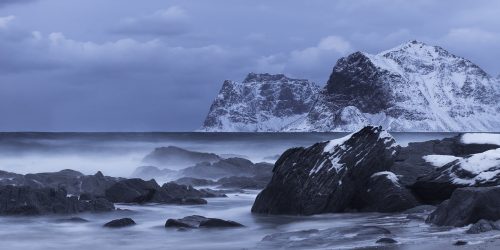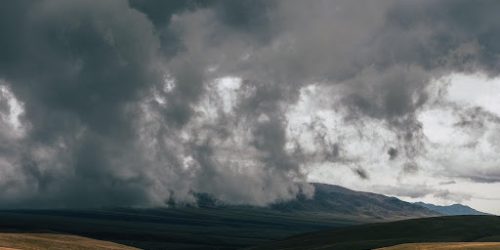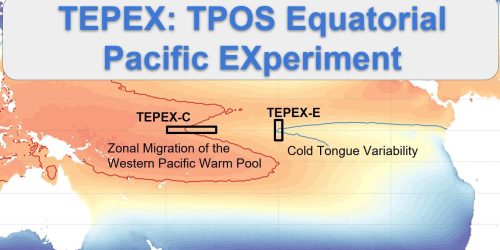
The tropical Atlantic Ocean goes through warm and cold phases called the Atlantic Niño or Niña, respectively, which are comparable to El Niño and La Niña in the Pacific Ocean. A new paper supported by the Climate Program Office’s Climate Variability & Predictability (CVP) Program takes a close look at changes in the Atlantic Niño over recent decades and its impact on regional and global climate. CVP-supported scientist Weiqing Han of the University of Colorado worked with an international research team from the Chinese Academy of Sciences, NOAA’s Pacific Marine Environmental Laboratory, and the National Center for Atmospheric Research to investigate the physical mechanisms of the Atlantic Niño using climate models. CVP funded this project in collaboration with NOAA Fisheries’ Office of Science and Technology to directly provide research and modeling to support the needs of NOAA Fisheries.
The Atlantic Niño prominently impacts climate on surrounding continents, but research has also shown that it remotely influences conditions farther away. Interestingly, the warm Atlantic Niño can trigger La Niña, the Pacific Ocean cold phase. This influence remains strong and steady today even though scientists found that the Atlantic Niño has weakened by about 30% since 2000. This study, published in Science Advances, proposes and defines two distinct types of this ocean phase, called the central and eastern Atlantic Niño, which have different patterns and climate impacts. The authors demonstrate that the central Atlantic Niño has a stronger influence on regional and remote tropical climate, while the eastern Atlantic Niño is responsible for the recent weakening signal. The results also identify other distinguishing characteristics between these two types, related to timing and frequency, air and ocean temperatures, and wind patterns. Thorough model analysis in this study provides an updated understanding of tropical climate and will help us to predict climate conditions in both the Atlantic and Pacific regions in the future.
For more information, contact Clara Deck.
Image credit: Pixabay









